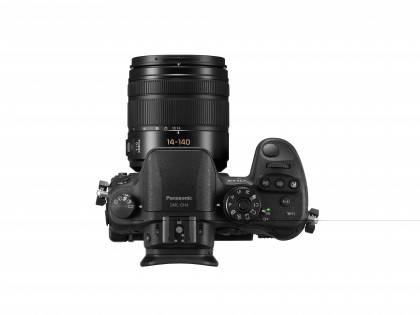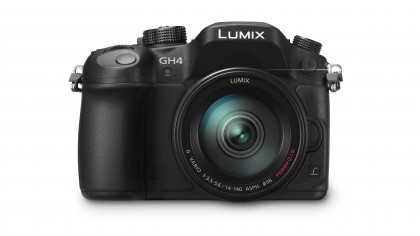Why you can trust TechRadar
As a general rule the GH4 produces great looking images with good exposure, pleasing contrast, natural colours and good detail.
Zooming into 100% on-screen reveals that some JPEG images don't have quite the fine detail or micro contrast that we see from other cameras, but at sensible viewing sizes they look great. As is often the case, simultaneously captured raw files have more detail. At higher sensitivity settings they also have more noise, but this can be dealt with on an image-by-image basis to produce a good result.
Noise is controlled well throughout the sensitivity range, but detail isn't maintained quite as well as by the Fuji X-T1, for example, at higher sensitivity settings.

At 100% on-screen JPEGs look good up to around ISO 3200. Above this figure softening becomes more apparent. Raw files have chroma noise visible at 100% from around ISO 800, but it's within acceptable limits, and as mentioned before, can be subjected to reduction as required.
By ISO 12,800, however, raw files need more careful editing to conceal noise and preserve detail. The highest value (ISO 25,600) produces respectable results, but as is often the case, it's best kept for emergencies.
Panasonic claims that the GH4's AF system can operate down to an incredible -4EV and our testing indicates that with the right lens it is quite a bit better in low-light than previous G-series cameras. We were impressed by how quickly it was able to focus with the new Leica DG Notricon 42.5mm f/1.2 ASPH O.I.S in very dim conditions, but this is a super-fast lens with a high price to match.
The 12-35mm f/2.8 lens, which gives a focal length range equivalent to the popular 24-70mm on a full-frame camera, also delivers sharp subjects quickly, but we found the new 14-140mm f/3.5-5.6 kit lens a little more variable – especially at the telephoto end.
Sign up for breaking news, reviews, opinion, top tech deals, and more.
In good light the AF system is generally very fast and it can keep pace with moving subjects when the AF point is in the correct location. Tracking AF mode has also improved, but it can't be relied upon to follow a fast moving subject around the frame.

The autofocus system changes pace when movies are being recorded and a touch of the screen to change focus point sees the focus shift smoothly and (comparatively) slowly, creating a professional looking result.
Panasonic's metering and white balance systems have been found to be good performers in the past, producing well-exposed, natural-looking images. The GH4 doesn't disappoint as it's automatic white balance system produces natural-looking results in a wide range of lighting conditions. In natural light the results when shooting using the automatic settings are often indistinguishable from those taken using the daylight setting.
Although the GH4 has the usual trio of metering modes (Multiple, Centreweighted and Spot) we found that the general-purpose 1,728-zone multi-pattern metering delivers great results in most situations. In fact there were relatively few times when we had to use the exposure compensation facility to adjust exposure.
As usual the GH4 is supplied with Silkypix software for editing images and converting raw files. In reality few users are likely to use this software, preferring Adobe's more refined and better specified options: Photoshop CC, Lightroom 5 or Elements 12. Silkypix has most of the controls that you need but it isn't especially intuitive or pleasant to use and prospective GH4 owners will be looking forward to the Camera Raw update that makes raw file processing possible with Photoshop.
We haven't been able to test the GH4's video capability extensively, but it's clear that it produces high quality footage. As with still images, exposure, white balance and colour is good and there's plenty of detail visible.
